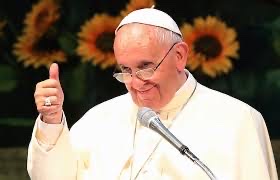Three Marriages, No Annulments — The Domestic Contradiction of The Kurgan
“Let marriage be held in honor among all, and let the marriage bed be undefiled.”
— Hebrews 13:4
The Kurgan never misses a chance to attack others for their failings, especially in matters of faith. He’s the first to declare someone “not a real Catholic,” denounce “fake clergy,” or assign people to the flames for liturgical imperfection. But when it comes to his own life, a strange silence takes hold.
Or worse—an open contradiction.
In his latest blog post, “The Cowards,” he casually admits:
“I made plenty of errors too. Twice divorced and many women in between. BUT… I am now happily married with a sixth kid on the way.”
The problem? He has never mentioned a single annulment. And as far as anyone can tell, he doesn’t recognize any ecclesiastical authority capable of granting one. After all, in his view, the Church has been “fake” since 1958.
Which means this supposed champion of tradition and canon law is—by his own admission—on his third marriage, with no canonical process, no ecclesial approval, and no sacramental authority.
That’s not Catholic fidelity. That’s moral relativism in a crusader costume.
Marriage as Machismo
Even his description of his romantic history is revealing. His past sins—divorce, promiscuity—aren’t met with contrition or theological insight. Instead, they’re presented as tough-guy street credentials. Another notch in his “real man” belt. A way to tell you he’s seen it all, done it all, and now knows better—so listen up.
Contrast that with any true Catholic saint who has fallen: Augustine, Ignatius, even Paul. Each one was humbled by their sins. Their credibility came from repentance, not bravado.
Kurgan repackages moral failure as masculine authority. That’s not Catholic maturity. That’s spiritual salesmanship.
The Canonical Problem
Let’s be blunt: if Kurgan was ever validly married in the eyes of the Church, then any remarriage without an annulment is:
-
Adulterous (cf. Matthew 19:9)
-
Illicit and gravely sinful under both the 1917 and 1983 Codes of Canon Law
-
A cause for exclusion from the sacraments, per Familiaris Consortio and Catechism §2384
He cannot claim to be a model of Catholic tradition while simultaneously rejecting the Church’s teaching on the indissolubility of marriage.
He demands perfect liturgical fidelity from others while living in open contradiction to one of the most serious moral teachings of the Church.
Final Thought
The Catholic Church does not operate on double standards. There is no separate code of canon law for bloggers. There is no private tribunal for self-appointed defenders of truth. If you call yourself Catholic, you submit to what the Church teaches—even when it cuts against your past.
The Kurgan wants to judge others for the state of their souls. But in doing so, he invites the question:
What’s the state of yours?
Three marriages. No annulments.
That’s not “based.”
That’s not “traditional.”
That’s not Catholic.

Comments
Post a Comment